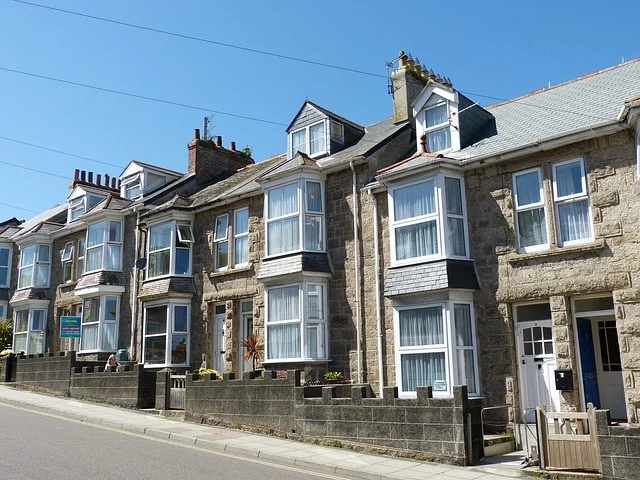Moving home is said to be one of the most stressful life experiences, and having done it several times and dealt with hundreds of clients who have also gone through the process, I offer you my top tips.
1. Know your numbers:
a) If you will need a mortgage to buy your new home, see a whole-of-market mortgage adviser now, if you haven’t already done so. They will give you the knowledge of how much you can borrow backed up by an ‘Agreement in Principle’ which you can give to an Estate Agent when the time comes to prove that you are ‘financially qualified’. If you don’t have this, you run the risk of being shoe-horned in to see their in-house broker, who in many cases only has a limited number of lenders available to them.
b) If you are selling a house, wait until you have had an acceptable offer made by a buyer who is ready to proceed. This is your Sale price. Get a current balance from your mortgage provider, and deduct it from your sale price to work out how much ‘equity’ you have in your property.
c) The figure from your Agreement in Principle (AIP) added to your equity will give you your budget when looking for your new home – bear in mind that you may need to use some of your equity to fund agents/lenders fees if you don’t have separate savings. This stops you setting your heart on a property and then either not being able to afford to buy it, or it going to another buyer who is ready to move as part of a completed chain.
2. Take Care with Estate Agents
Purchase
The Estate Agent works for the VENDOR – every time, and you should bear this in mind. This is still the case if you purchase through a large chain agent on a ‘sale by tender/ sealed bid’ scheme where you as the purchaser pay their fees. You cannot help which agent your dream home is listed with, but you may find that some agents are easier (and more transparent) to deal with than others.
In my experience, the larger agents tend to be pushier, both in showing you properties that are outside of your budget / requirements and in ‘encouraging’ you to purchase related products from them (mortgage / solicitors etc.) and a lot of this is down to the way that their staff are remunerated, with increased bonuses given for number of viewings booked and extras sold. If you want to use their in-house guys, great – but if not, don’t be afraid to hold your ground. Legally they are not allowed to refuse to put your offer forward if you do, but is perfectly reasonable that they would want to financially qualify you – so feel free to give them your AIP and adviser’s contact details to support your offer.
Remember, their aim is to get the best possible price for the vendor and you should avoid telling them your maximum price or showing them your AIP until your offer is accepted – if they know you can go higher, you may find you get a phone call to say you have been outbid, in an attempt to push you up.
Sale
I would suggest getting your existing property valued by at least 2, and ideally 3, Estate agents. Have a look around to see who has the most ‘sold’ boards locally (not for sale) and ask friends who they would recommend or avoid.
Try to get one of the Nationals (Your Move, Reeds Rains, Ward and Partners etc.) plus 2 independent or small chain (2-5 local branches) agents. Their valuations will vary, with often the more realistic figure coming from an independent or small chain agent. Their agent’s fees will also vary, and you should find out what is included in the price that they quote you – which is often expressed as a percentage of sale price – hence why they want you to sell for the most you can!
Most agents will now list your property online on one of the main property portals, Right Move, Zoopla etc. but some agents charge extra for photos, a ‘for sale’ board and even accompanying viewings of your property – so be clear what you are getting for the price you pay as it can run into thousands of pounds. What you are looking for is someone who will sell your property for you, and earn their money doing so. Listing online with an online-only agent may be cheap, but you will end up doing a lot of the viewings, chasing phone calls and work yourselves – why else would they offer to sell your house for £500?
Be clear with your agent if you wish all offers made to be put forward, or only those from buyers in completed chains/cash buyers, or if you are not prepared to do un-accompanied viewings (i.e. without an agent present).
3. Don’t get over–excited
The house-buying process in England and Wales is not the most straightforward of processes and in spite of the money that you may spend out on surveys solicitors and mortgage fees, anyone can pull out without any penalty right up to exchange of contracts. So try to take it one step at a time, and don’t book removal vans, order new furniture or give notice on your rented flat until you have exchanged contracts.
The process in a simple chain can take as little as 6 weeks, but can be as long as several months depending on how co-operative solicitors are, how many people need mortgages and how many Estate agents are involved. You can only control your part – make sure that you complete and return forms when asked with the right supporting documents and that the chain is not waiting for you!
At exchange of contracts you all set the same completion date, this is the date when the money changes hands and you get the keys to your new property. It’s usual to have 2-4 weeks between exchange and completion but this can be longer or shorter depending on which date everyone agrees to.
On completion you have to clear the contents of the house (try to be out before mid-day) you then wait for the call from your solicitor that the money has gone through and you can then go to the Estate Agent to collect the keys to your new home.
Finally, it is a good idea to change the lock on at least the front door, you don’t know how many people excluding the agent have keys which may not have been returned, and it is better to be safe than sorry!


